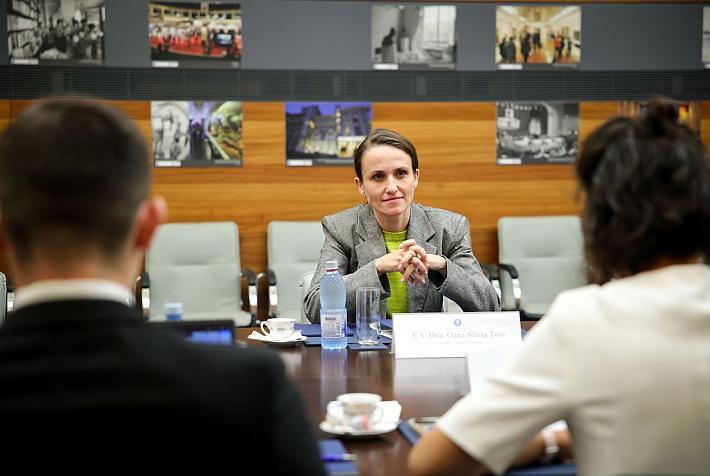Intercultural communication: Business networking and cultural behavior patterns

 Business networking is a socioeconomic activity by which groups of business people recognize, create, or act upon business opportunities. It allows business people to build new business relationships and generate business opportunities at the same time. Many business people see business networking as a more cost-effective method of generating new business than advertising or public relations efforts because business networking is a low-cost activity that involves personal commitment rather than company money.
Business networking is a socioeconomic activity by which groups of business people recognize, create, or act upon business opportunities. It allows business people to build new business relationships and generate business opportunities at the same time. Many business people see business networking as a more cost-effective method of generating new business than advertising or public relations efforts because business networking is a low-cost activity that involves personal commitment rather than company money.
The ability to network — to develop contacts and personal connections with a variety of people — is an important skill for any global business leader. The only obstacle here is that global networking can be extremely difficult when the rules for networking vary across cultures. And these cultural challenges can be so strong that some global leaders often try to avoid networking opportunities— despite how important these opportunities can be for their careers.
How is networking affected by different cultural behavior patterns?
Imagine yourself at a networking event where recruitment agencies, companies and candidates meet. When you see a potential employer from a company you're interested in, you approach the person, look into his or her face, and say the following:
"Hello, I know you are from BCR. I'm very interested in working for BCR and would like to present myself”.
A group of foreign professionals in Romania were asked whether according to Romanian business and cultural norms, the person's statement was:
(a) Too direct; (b) Not direct enough; (c) Direct but respectful
The same question was asked to a group of Romanian professionals, and the answers from the two groups were different.
Foreign professionals answered (c), that the statement was respectfully direct, and it was a reasonable way to begin a networking conversation in the United States.
The foreign professionals from other countries, on the other hand, saw the situation quite differently. A few with multicultural experience agreed with the Americans. However, the large majority of foreign businessmen living in Romania chose (a) — that the behavior was too direct and very assertive or aggressive for a Romanian networking event.
According to Romanian behavior patterns the presentation in a soft manner would be more appropriate: "Hello, sir. My name is Adrian Popescu. I am very honored to meet you. Would it be possible for me to introduce myself to you?"
The foreign business people were asked again to evaluate the appropriateness of this statement according to Romanian business and cultural norms: in particular, whether the statement was:
(a) Appropriately polite: When talking with someone at a networking event, especially someone senior to you in either age or professional background, it is important to be highly respectful.
(b) Too polite: Even when talking with someone senior to you in age or professional background, it is important not to be overly polite. It makes you look like you lack confidence and professionalism.
Here the opinions were divided: foreign business people from the US chose (b), whereas business people from Europe chose (a) — that the statement was appropriately polite for this situation in Romania.
A Romanian IT engineer described his experience participating at a multicultural networking event as follows: “I feel that I am performing like a clown, trying to become somebody that I am not, being artificial and fake. During this networking event I want to sell myself, pouring a story about my abilities on a stranger pushing myself to feel like I am doing things to achieve my objectives at all cost”.
Here are some areas where cultural differences might step in:
Business card etiquette
Exchanging business cards is an essential part of most cultures. It can be a business ceremony when a business card (as an extension of an individual) is presented to the other person with the front side facing upwards toward the recipient. Offering the card with both hands holding the top corners of the card demonstrates respect to the other person. it's truly an extension of the individual and is treated with respect. Things like tucking it into a pocket after receiving it, writing on it, bending or folding it in any way, or even looking at it again after you've first accepted it and looked at it aren't considered polite and can insult your fellow Asian networker, for example.
How are business cards treated in Romania? What do you think, based on your experience?
Consideration of "Personal Space"
It's crucial to understand the subtle, unspoken dynamics of personal space in every culture. Some cultural dynamics are fine with close, personal interaction, while others demand a bigger distance. This is not a point to underestimate.
There are three basic separations to consider when taking personal space into account. For Americans, they typically are: public, social and personal space.
In Saudi Arabia, their social space equates to our intimate space, in the Netherlands, this might be reversed due to the fact that their personal space equates to our social space. Do your homework and be sensitive to cultural differences in this area.
How can global business professionals acquire this critical global leadership skill- networking?
Three pieces of advice can be be given for success in learning how to adapt behavior across cultures in a networking event or in any other situation where you need to switch your cultural behavior in order to be effective in a new cultural environment.
(1) Learn from local people: Watch carefully how others operate in networking situations, and learn what behaviors should be applied or should not be even considered. Customize your own approach from what you observe to develop a style that feels appropriate to you, and that is also effective in the new setting.
(2) Try to understand the new cultural logic: Learn the concept for the new behavior from the perspective of the new culture. For example, why "small talk" is such an important part of networking or why direct eye contact is necessary, or how close you should be standing to a person next to you, should you have a smiling face while talking or serious tone of your voice is more suitable during this presentation and…do you shake hands or not? Understand from the Romanian point of view why and how you should speak positively about yourself and your qualifications. Master the logic of the new culture and the behavior and you will feel much more comfortable to perform in this cultural environment.
(3) Practice many times, and in situations that are stressful and create the pressure of real situations. Then local networking behavior will be so deeply integrated into your mind that it becomes your "new normal" networking pattern— something you do naturally.
If you have the ability to consult with someone in that country who's familiar with that culture before interacting with their businesspeople, do it.
This advice can help you to master networking in any culture as this method can be applied to any other global leadership situation you might face.
The article is based on 2 sources:
1. Networking Etiquette around the world by Ivan Misner.
2. How to Network across cultures by Andy Molinsky. HBR blog Network.
By Irina Budrina, Guest Writer
Irina Budrina – Cultural Intelligence Expert & Contributor. She holds a degree in Psychology from the Moscow State University, specializing in Personality and Cross-cultural Psychology, Psychology of Advertising, PR and Marketing, and and EMBA from the Temple University Japan-USA.
(photo source: Irina Budrina)











